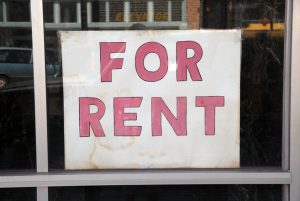Personal injury Lawyer Matt Arnold answers the question: ” I have been injured on another person’s property. What should I do now?”
Owning rental property can be a great financial move, assuming things go smoothly. If real estate values increase, the tenants pay their rent on time and no one gets hurt, it can be a great way to build assets. The problem, unfortunately, is that things don’t always go so smoothly. Real estate bubbles burst, tenants have to be evicted and people sometimes trip and fall. Though we have little control over the first two issues, there are things that can be done to better understand and prepare for a personal injury lawsuit related to rental property. To learn more about how such tenant injury lawsuits work, keep reading.
The primary way that landlords become legally liable for accidents that occur on their premises is through a concept known as negligence. Negligence refers to the idea that people can be held responsible for the unintentional harm their actions (or inactions) cause to others. To show negligence, a plaintiff (or tenant, in this case) would need to show that the landlord failed somehow, usually by breaching a duty of care owed to the tenant, and that this failure resulted in harm to the tenant.
What exactly needs to be proved?
Specifically, a tenant would need to show that the landlord breached a standard of care. So what standard of care does a landlord owe to a tenant? In most cases, a landlord owes a reasonable level of care. That means the landlord is required to maintain a reasonably safe condition on his or her property. Though it’s frustrating, there’s a great deal of subjectivity at work here. One landlord’s idea of “reasonable” may not be the same as another landlord. That’s why when an accident happens, a court will look at how a similarly situated reasonable landlord would have behaved. Would the landlord have made certain repairs or warned of certain dangers? If so, and if the landlord at issue failed to take these steps, then he or she can be found legally liable for any harm that’s caused.
Was the injury foreseeable?
Beyond proving that a standard of care was violated, the tenant must also show that the harm suffered was foreseeable. This question revolves around whether the landlord should have been expected to know that the consequence of failing to fix a problem would lead to the kind of harm suffered. For example, if a landlord new about a rotten board on the porch and failed to repair it and the tenant falls through the porch, spraining his ankle, this kind of injury is foreseeable and liability becomes more likely. If, however, the landlord knew of the same rotten board and the tenant fell through the porch and at the same time was hit by a car that drove off the road, that’s the kind of harm that is not generally foreseeable.
How to minimize liability
If you’re a landlord, what things can you do to minimize potential liability in such a situation? The first thing you can do is inspect the premises on a somewhat regular basis. This means not waiting until the tenant leaves to take a look around. Be sure that you understand what condition your property is in and that you’re aware when complaints are made and repairs take place. If you become aware of a dangerous condition, take steps to remedy the problem right away. Failing to do so invites the possibility of a pricey lawsuit.
If you or someone close to you has been injured, contact an experienced personal injury attorney today who can help you receive the compensation to which you may be entitled. Contact Arnold & Smith, PLLC for a free consultation, call at 704-370-2828 or click here for additional resources.
About the Author
 Matthew Arnold is a Managing Member of Arnold & Smith, PLLC, where he focuses on the areas of family law, divorce, child custody, child support, alimony and equitable distribution.
Matthew Arnold is a Managing Member of Arnold & Smith, PLLC, where he focuses on the areas of family law, divorce, child custody, child support, alimony and equitable distribution.
Mr. Arnold was raised in Charlotte, where he graduated from Providence Senior High School. He attended Belmont Abbey College, where he graduated cum laude, before attending law school at the University of North Carolina at Chapel Hill on a full academic scholarship.
A board-certified specialist in the practice of Family Law, Mr. Arnold is admitted to practice in all state courts in North Carolina, in the United States Federal Court for the Western District of North Carolina, in the North Carolina Court of Appeals and Supreme Court, and in the Fourth Circuit United States Court of Appeals in Richmond, Virginia.
In his free time, Mr. Arnold enjoys golfing and spending time with his wife and three children.
Source:
https://www.landlordology.com/landlords-liability-for-personal-injuries-of-tenants/
Image Credit:
http://www.freeimages.com/photo/sign-1444110
See Our Related Video from our YouTube channel:
https://www.youtube.com/user/ArnoldSmithPLLC/videos
See Our Related Blog Posts:
 Charlotte Injury Lawyers Blog
Charlotte Injury Lawyers Blog



 How can I help you?
How can I help you?